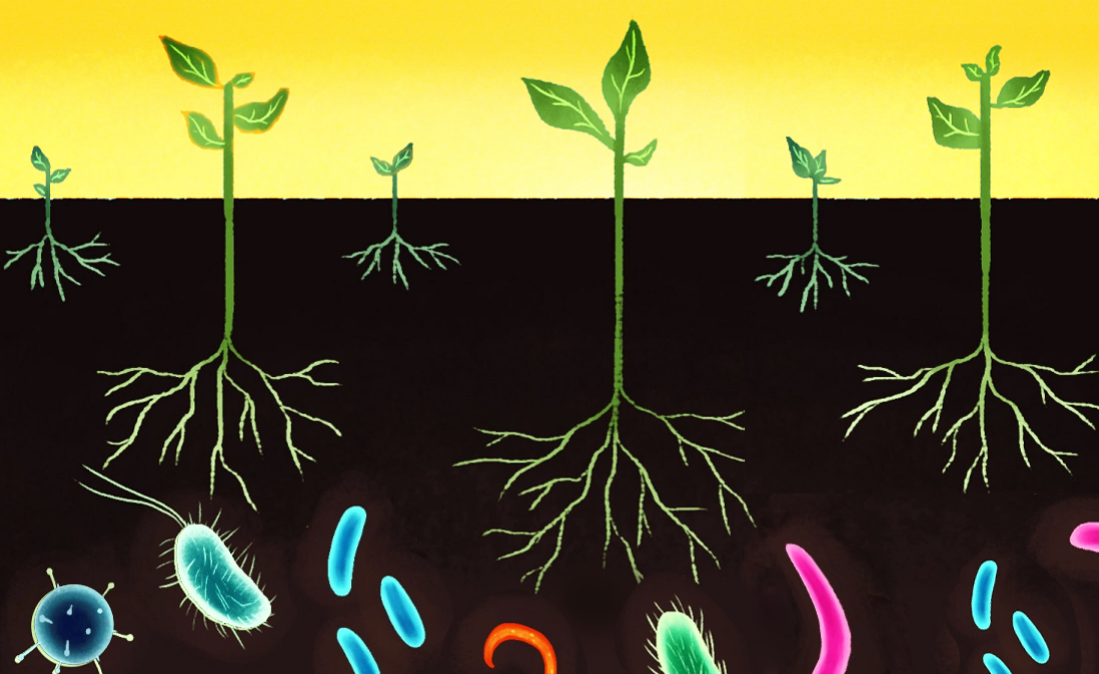
What is the role of microbes in compost production?
Answer
607.5k+ views
Hint: Microorganisms have a potential benefit to the environment. It can act as a degrading material. Microorganisms make a symbiotic relationship with the plants root in the soil.
Complete answer:
Composting is a type of waste which is biodegradable so that it can be broken down into different substances. So here microbes carry out the respiration and get their energy from the waste and hence their survival reason is from waste only and they need this energy to grow the byproduct as Compost. Compost is great for gardens as we know it provides us the basic nutrients and minerals in the soil.

These microbes are known as beneficial indigenous organisms (BIO) or effective microorganisms. Compost is a microbially driven process where organic material progresses by certain stages of decomposition as well as stabilisation in a very limited period of time. Stages may include soil heating stabilising which is further controlled by a different group of microorganisms.
Monitoring temperature, and Carbon Dioxide enables us to determine the composed phase, chemical phase and physical and biological condition of a compost phase.
Mostly composed contains molds and yeast in higher amounts and they are further helping in decomposition and forms soil and composition. So, microbes break the organic material to produce heat, Carbon Dioxide and water, which further provides rich soil to improve plant quality.
The beneficial microorganisms include actinomycetes cities rhizobium and helps in enhancing the nutrient quality and further in production of growth hormones. If we want to add the microbes to the soil in more amounts, we have to add manure, wood chips, dung, etc. and keep planting so as to give nutrients to the microbes growing there.
Note: Fungi are the one of most important composting material because they have been broken down through the process of debris formation.
Complete answer:
Composting is a type of waste which is biodegradable so that it can be broken down into different substances. So here microbes carry out the respiration and get their energy from the waste and hence their survival reason is from waste only and they need this energy to grow the byproduct as Compost. Compost is great for gardens as we know it provides us the basic nutrients and minerals in the soil.

These microbes are known as beneficial indigenous organisms (BIO) or effective microorganisms. Compost is a microbially driven process where organic material progresses by certain stages of decomposition as well as stabilisation in a very limited period of time. Stages may include soil heating stabilising which is further controlled by a different group of microorganisms.
Monitoring temperature, and Carbon Dioxide enables us to determine the composed phase, chemical phase and physical and biological condition of a compost phase.
Mostly composed contains molds and yeast in higher amounts and they are further helping in decomposition and forms soil and composition. So, microbes break the organic material to produce heat, Carbon Dioxide and water, which further provides rich soil to improve plant quality.
The beneficial microorganisms include actinomycetes cities rhizobium and helps in enhancing the nutrient quality and further in production of growth hormones. If we want to add the microbes to the soil in more amounts, we have to add manure, wood chips, dung, etc. and keep planting so as to give nutrients to the microbes growing there.
Note: Fungi are the one of most important composting material because they have been broken down through the process of debris formation.
Recently Updated Pages
Master Class 10 Computer Science: Engaging Questions & Answers for Success

Master Class 10 General Knowledge: Engaging Questions & Answers for Success

Master Class 10 English: Engaging Questions & Answers for Success

Master Class 10 Social Science: Engaging Questions & Answers for Success

Master Class 10 Maths: Engaging Questions & Answers for Success

Master Class 10 Science: Engaging Questions & Answers for Success

Trending doubts
What is the median of the first 10 natural numbers class 10 maths CBSE

Which women's tennis player has 24 Grand Slam singles titles?

Who is the Brand Ambassador of Incredible India?

Why is there a time difference of about 5 hours between class 10 social science CBSE

Write a letter to the principal requesting him to grant class 10 english CBSE

A moving boat is observed from the top of a 150 m high class 10 maths CBSE




